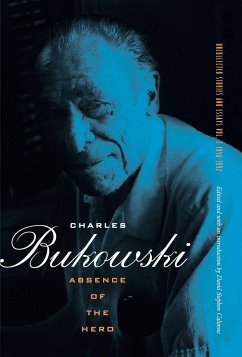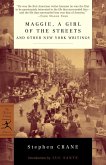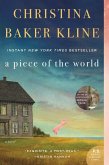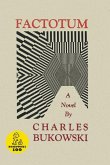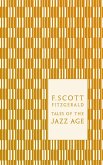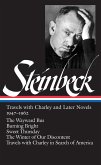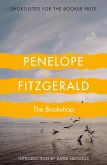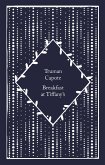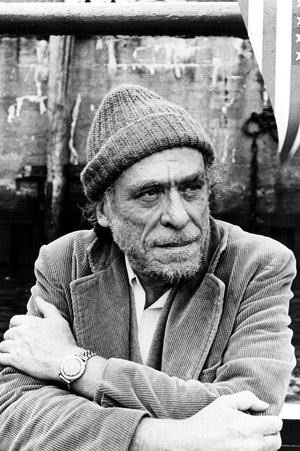Everyone's favorite Dirty Old Man returns with a new volume of uncollected work. Charles Bukowski (1920-1994), one of the most outrageous figures of twentieth-century American literature, was so prolific that many significant pieces never found their way into his books. Absence of the Hero contains much of his earliest fiction, unseen in decades, as well as a number of previously unpublished stories and essays. The classic Bukowskian obsessions are here: sex, booze, and gambling, along with trenchant analysis of what he calls "Playing and Being the Pet." Among the book's highlights are tales of his infamous public readings ("The Big Dope Reading," "I Just Write Poetry So I Can Go to Bed with Girls"); a review of his own first book; hilarious installments of his newspaper column, Notes of a Dirty Old Man, including meditations on neo-Nazis and driving in Los Angeles; and an uncharacteristic tale of getting lost in the Utah woods ("Bukowski Takes a Trip"). Yet the book also showcases the other Bukowski-an astute if offbeat literary critic. From his own "Manifesto" to his account of poetry in Los Angeles ("A Foreword to These Poets") to idiosyncratic evaluations of Allen Ginsberg, Robert Creeley, LeRoi Jones, and Louis Zukofsky, Absence of the Hero reveals the intellectual hidden beneath the gruff exterior.
Our second volume of his uncollected prose, Absence of the Hero is a major addition to the Bukowski canon, essential for fans, yet suitable for new readers as an introduction to the wide range of his work.
"He loads his head full of coal and diamonds shoot out of his finger tips. What a trick. The mole genius has left us with another digest. It's a full house-read 'em and weep."-Tom Waits
"This second volume of Bukowski's uncollected stories and essays offers all that Bukowski is known for-wry obscenity, smutty wisdom, seeming ramblings whose hidden smarts catch you unaware-but in addition there are moments here in which he takes off the mask and strips away the bravado to show himself at his most vulnerable and human. A must for Bukowski aficionados."-Brian Evenson, author of Last Days and The Open Curtain
"Like a brass-rail Existentialist or a skid-row Transcendentalist, [Bukowski] is candid, unblinking, leaving it to his readers to cast their own judgment about his mishaps, his drinking, his sexual appetite or his own pessimism. He is Ralph Waldo Emerson as a Dirty Old Man, not lounging in the grape-arbor of Concord, Massachusetts, but bent-over a table in an L.A. flophouse scribbling in pencil to the strains of Sibelius."-Paul Maher Jr., Phawker
"[Bukowski] could be generous and mean-spirited, heroic and defensive, spot-on and slanted, but he became the world-class writer he had set out to be; he has joined the permanent anti-canon or shadow-canon whose denizens had shown him the way. Today the frequent allusions to him in both popular and mainstream culture tend more to respect than mockery. If scholarship has lagged, this book would indicate that this situation is changing."-Gerald Locklin, Resources for American Literary Study
"The pieces range over nearly half a century, and include a story about a baseball player seized by a sudden bout of existential paralysis, along with early, graphically sexual (and masterfully comic) stories published in such smut mags as Candid Press."-Penthouse
Hinweis: Dieser Artikel kann nur an eine deutsche Lieferadresse ausgeliefert werden.
Our second volume of his uncollected prose, Absence of the Hero is a major addition to the Bukowski canon, essential for fans, yet suitable for new readers as an introduction to the wide range of his work.
"He loads his head full of coal and diamonds shoot out of his finger tips. What a trick. The mole genius has left us with another digest. It's a full house-read 'em and weep."-Tom Waits
"This second volume of Bukowski's uncollected stories and essays offers all that Bukowski is known for-wry obscenity, smutty wisdom, seeming ramblings whose hidden smarts catch you unaware-but in addition there are moments here in which he takes off the mask and strips away the bravado to show himself at his most vulnerable and human. A must for Bukowski aficionados."-Brian Evenson, author of Last Days and The Open Curtain
"Like a brass-rail Existentialist or a skid-row Transcendentalist, [Bukowski] is candid, unblinking, leaving it to his readers to cast their own judgment about his mishaps, his drinking, his sexual appetite or his own pessimism. He is Ralph Waldo Emerson as a Dirty Old Man, not lounging in the grape-arbor of Concord, Massachusetts, but bent-over a table in an L.A. flophouse scribbling in pencil to the strains of Sibelius."-Paul Maher Jr., Phawker
"[Bukowski] could be generous and mean-spirited, heroic and defensive, spot-on and slanted, but he became the world-class writer he had set out to be; he has joined the permanent anti-canon or shadow-canon whose denizens had shown him the way. Today the frequent allusions to him in both popular and mainstream culture tend more to respect than mockery. If scholarship has lagged, this book would indicate that this situation is changing."-Gerald Locklin, Resources for American Literary Study
"The pieces range over nearly half a century, and include a story about a baseball player seized by a sudden bout of existential paralysis, along with early, graphically sexual (and masterfully comic) stories published in such smut mags as Candid Press."-Penthouse
Hinweis: Dieser Artikel kann nur an eine deutsche Lieferadresse ausgeliefert werden.
"Charles Bukowski, the late poet best known for his odes to sex, booze and general skid-row squalor, turns reflective in much of Absence of the Hero: Uncollected Stories and Essays, Vol. 2: 1946-1992. In one piece, titled "He Beats His Women," Bukowski touches on a visit to these parts: 'The only time I read in San Francisco, 800 people arrived and 100 of those arrived with buckets of garbage to throw at me. At 2 bucks a head, that garbage didn't smell too bad.'"-San Francisco Chronicle
"When Bukowski sat down at his trusted Underwood typewriter to 'play the piano,' it was the only time in his life he felt immortal, with every word painstakingly chosen and direct from the gut. If you haven't had the pleasure of digging into one of his already published works, these easily digestible stories are a perfect starting point."-Johnson Cummins, The Montreal Mirror
"Even after he published more than 50 books, Bukowski (1920-1994) left behind dozens of unpublished stories and essays. U.S. American literature scholar Calonne, who also edited Vol. 1 of Bukowski's unpublished works, provides an informative and informed introduction and a useful set of notes."-The Toronto Globe and Mail
"But unlike 'Exit to Brooklyn' and other erotically charged American tales of urban horror and desperation, many of Bukowski's short stories actually leave one with a warm glow, whether from reluctant but real love, brilliant delineation of sociological phenomena in America or, once in a while, juicy science fiction."-Adam Perry, Boulder Weekly
"Charles Bukowski, prophet of the lost, deacon of the mean and insane...In Absence of the Hero, City Lights' second posthumous volume of uncollected stories and essays, we're given samples spanning almost his entire career. There are moments of brilliance and flickers of light..."-Chico News and Review
"City Lights take their Bukowski uncollected stories and essays seriously and David Calonne has meticulously assembled and documented the two volumes of this series...this is essential reading for every Bukophile."-Bold Monkey
"[Bukowski] seems to be one of those rare writers who learns not by emulating a given model but by reading his own stuff as he writes and rediscovering for himself the dignity of form...A low-life raconteur and a dimestore perv, Bukowski was the life of the party night after night. When you open any of his books, that party goes on."-Said Shirazi, Fifth Wednesday Journal
"When Bukowski sat down at his trusted Underwood typewriter to 'play the piano,' it was the only time in his life he felt immortal, with every word painstakingly chosen and direct from the gut. If you haven't had the pleasure of digging into one of his already published works, these easily digestible stories are a perfect starting point."-Johnson Cummins, The Montreal Mirror
"Even after he published more than 50 books, Bukowski (1920-1994) left behind dozens of unpublished stories and essays. U.S. American literature scholar Calonne, who also edited Vol. 1 of Bukowski's unpublished works, provides an informative and informed introduction and a useful set of notes."-The Toronto Globe and Mail
"But unlike 'Exit to Brooklyn' and other erotically charged American tales of urban horror and desperation, many of Bukowski's short stories actually leave one with a warm glow, whether from reluctant but real love, brilliant delineation of sociological phenomena in America or, once in a while, juicy science fiction."-Adam Perry, Boulder Weekly
"Charles Bukowski, prophet of the lost, deacon of the mean and insane...In Absence of the Hero, City Lights' second posthumous volume of uncollected stories and essays, we're given samples spanning almost his entire career. There are moments of brilliance and flickers of light..."-Chico News and Review
"City Lights take their Bukowski uncollected stories and essays seriously and David Calonne has meticulously assembled and documented the two volumes of this series...this is essential reading for every Bukophile."-Bold Monkey
"[Bukowski] seems to be one of those rare writers who learns not by emulating a given model but by reading his own stuff as he writes and rediscovering for himself the dignity of form...A low-life raconteur and a dimestore perv, Bukowski was the life of the party night after night. When you open any of his books, that party goes on."-Said Shirazi, Fifth Wednesday Journal

